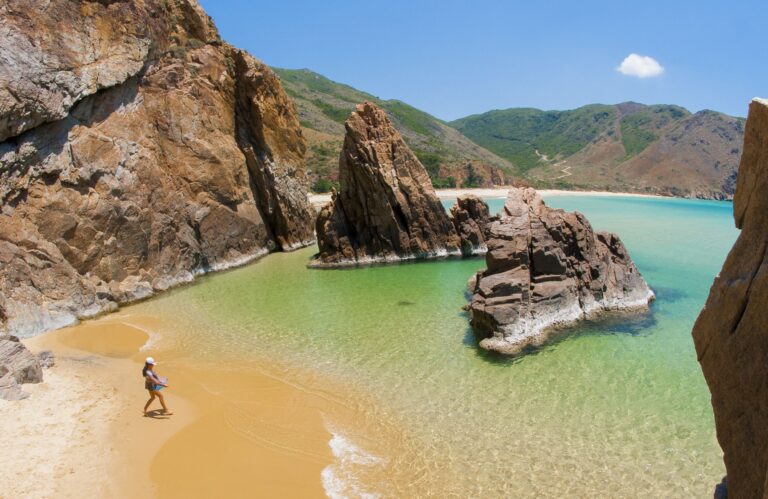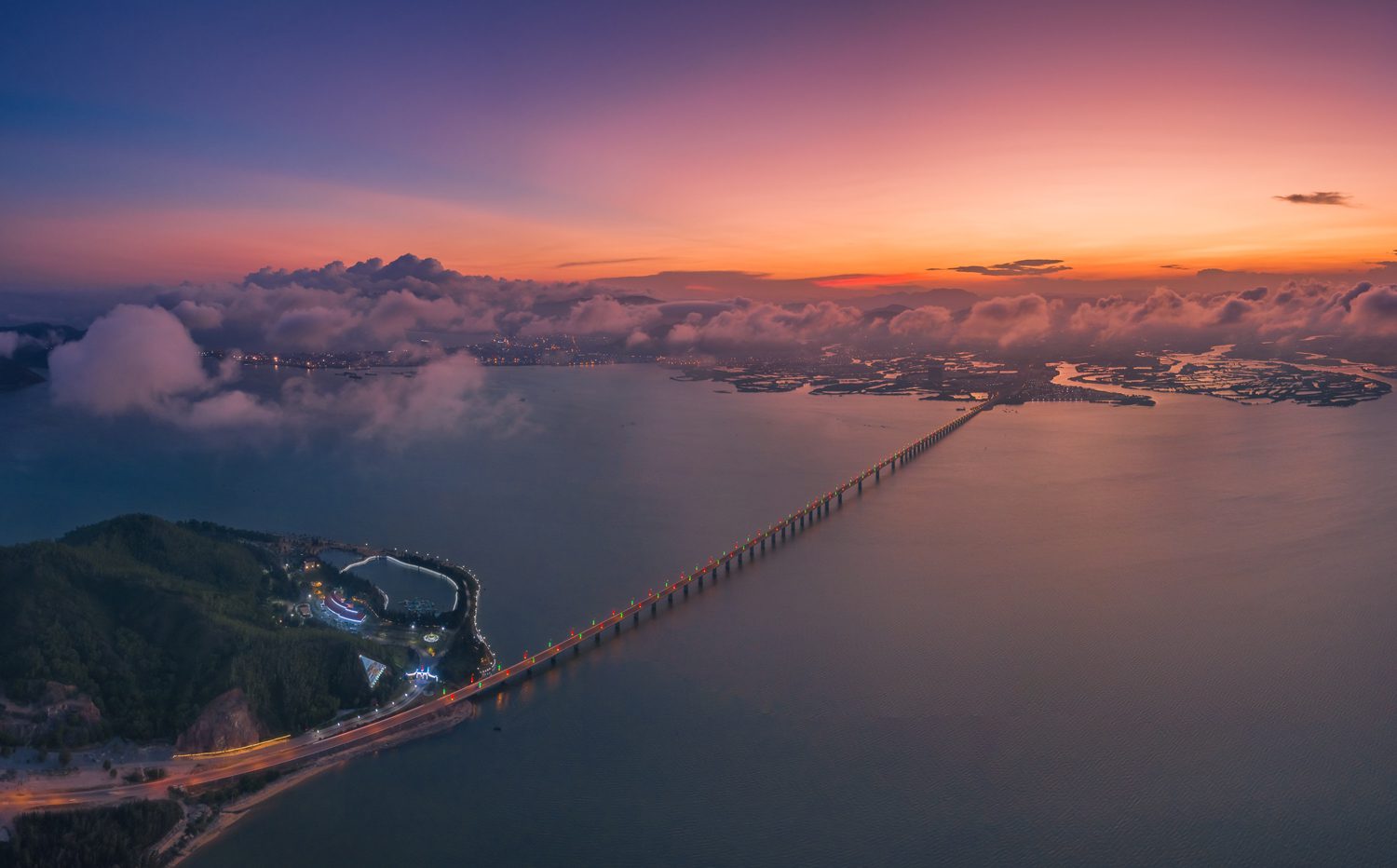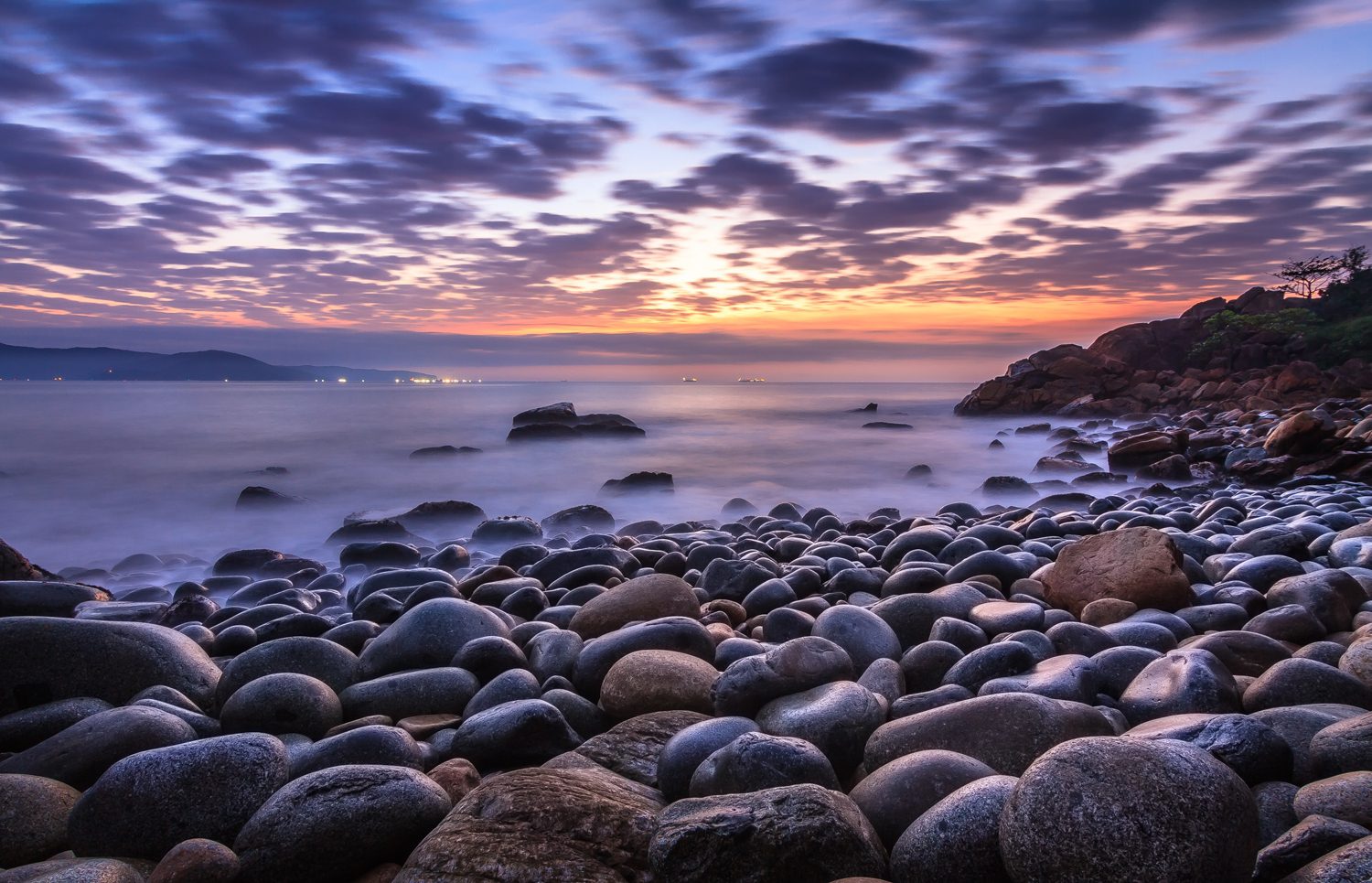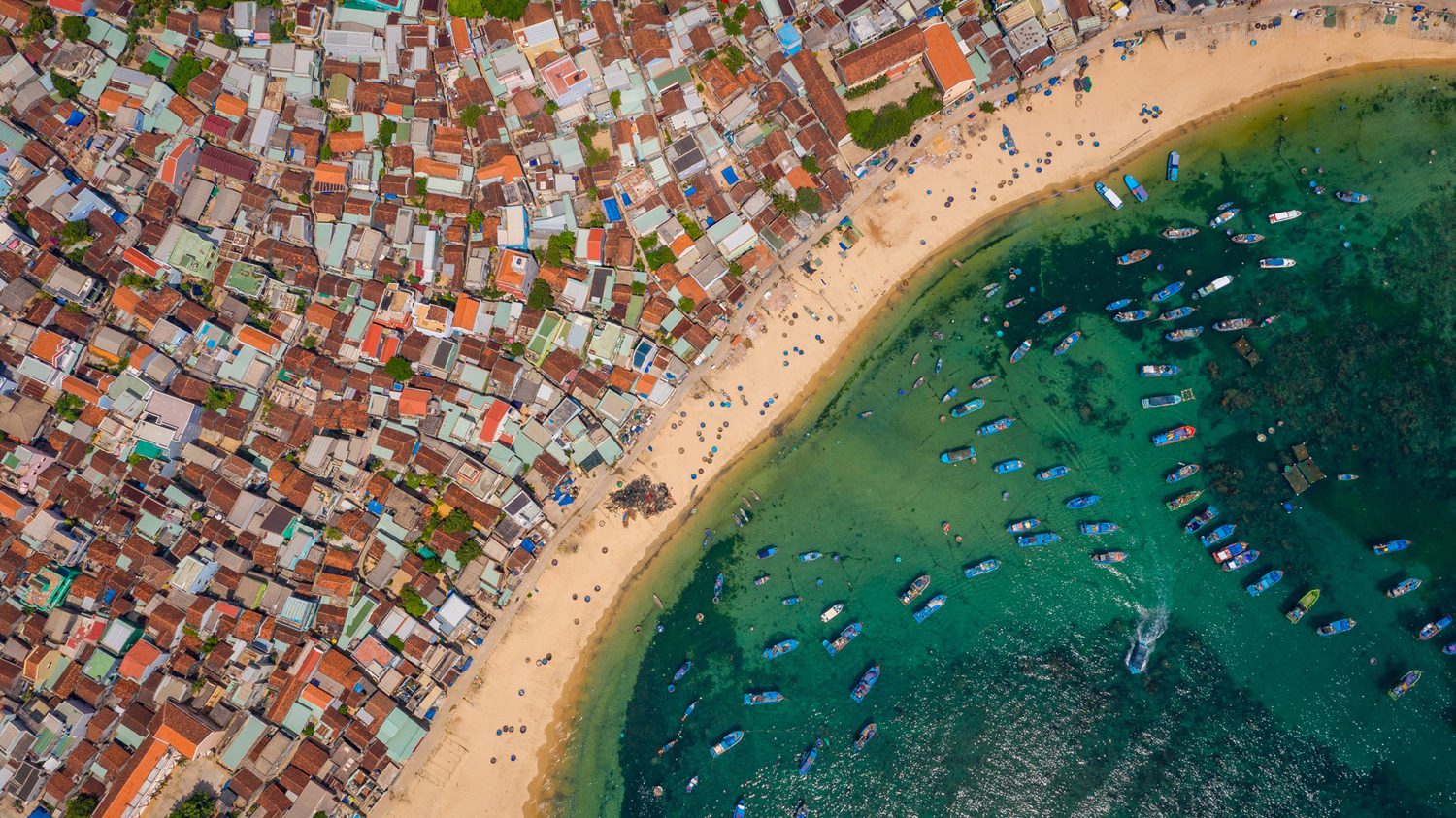
Quy Nhon 2022 – Tomorrow when you leave, the ocean will miss you and call your name.” While many love the song “Bien Nho” (The ocean misses) by songwriter Trinh Cong Son, few may know he wrote it in memory of a young love affair in the coastal city of Quy Nhon. The lyrics “Tomorrow when you leave, the city will have yellow lights at night, lonely souls call on their shoulders to be sad, listening to the rough sea is sadder” haunted me during my visit to Quy Nhon nearly 20 years ago. On a more recent visit, however, the coastal city welcomed me with its bright lights.
Traces under the sunlight
Quy Nhon sits along Vietnam’s south- central coast and was once viewed as a “transit town – a place to stop while heading elsewhere.
Times have changed. Quy Nhon is now an attractive destination in its own right. Boasting a lovely setting, its white sands, blue seas, rich culture, and rustic features preserved as it developed count among its many advantages.
It is a land with a long history, where the capital of the Kingdom of Champa, Do Ban (Vijaya), was established in 982AD. Located in a key position within the narrow delta formed bv the Con and Ha Thanh Rivers as they empty into Thi Nai Lagoon, the site of Quy Nhon has been a prosperous area for centuries, which also resulted in it often being a battleground in disputes between the Kingdom of Champa and Dai Viet, the Kingdom of Chenla, Siam, and Mongolia, and it later became the southernmost region of Dai Viet under the reign of Emperor Le Thanh Tong, in 1471.

The land witnessed the Tay Son Uprising and the battles between this dynasty and Lord Nguyen Anh of the Nguyen Dynasty in the 18th century, and was then named Binh Dinh, as we know the province today. Its capital, Quv Nhon, was the scene of many historical events in Vietnam during the late imperial period. Cham towers can be seen scattered in and around Quy Nhon, with the Do Ban Citadel (aka Hoang De Citadel) nearby, evoking a past cited in poems within the well-known collection of Dieu Tan (Falling into ruin) by Che Lan Vien:
Here, the palace is resplendent under the sunlight
Stunning temples under the blue sky
Here, the warship is dreaming on the sal Tier
The herd of sacred elephants walks silently by the city (On The Way Home, 1937)
Located not far from the city center is the well-preserved “Thap Doi” (Twin Towers) and other ruins such as Canh Tien, Banh It, Duong Dong, and others all of which are national heritage sites
Poetry under the blue sky
Ruins, however, are far from the only feature of Quy Nhon.

It was an academic center during French colonial times, and with two other schools, in Hue and Vinh, was where local talent came together.
Che Lan Vien was a member of a group called “Ban Thanh Tu Huu” (Four Friends from Do Ban Citadel), joining Han Mac Tu, Quach Tan, and Yen Lan, and their “Crazy Epic Poetry” later became a symbol of the land’s literary heritage, giving birth to unique works in the 1926- 1945 period
Other notable poets such as Xuan Dieu and Bich Khe are also voices that have overcome the harsh screening of time
One poet who left a strong impression while in Quy Nhon was Han Mac Tu, with his haunting verses about the spiritual world. His grave in nearby Ghenh Rang has become a pilgrimage site for poetry lovers and those who admire his love stories narrated through anecdotes and songs.
Leisure & generosity
Quy Nhon, after years of war and economic crises, has changed dramatically in the opening two decades of the 21st century.

No longer a city sandwiched between mountains and Thi Nai Lagoon, it has now been expanded out to the sand dunes along Phuong Mai Peninsula, overlooking the East Sea, and connected to Song Cau district in Phu Yen province to the south and green fields to the west and north.
I visited Quy Nhon for a second time to discover and rediscover what it has to offer. Its great many beaches are typical of a coastal city. The crescent-shaped sands in the city center stretch for kilometers and remain quiet and peaceful compared to other coastal cities.
Its coastline is one of Quy Nhon’s strengths, with different sites such as Eo Gio. Kv Co, and Hon Kho on Phuong Mai Peninsula, as well as Ghenh Rang, Hong Hau, Bai Bang, and Bai Xep, among others. A short boat trip, meanwhile, takes you out to the island of Cu Lao Xanh. All are reminiscent of Xuan Dieu’s verse: The long flat sandy beach /mirroring the crystal sunshine.
Quy Nhon is now a popular base from which to explore south through the rest of Binh Dinh and into Phu Yen province, or to visit vestiges from the Tay Son Uprising, Quang Trung Museum, and the Lang Song Seminary to the north, which was one of the three largest printing establishments in Vietnam at the end of the 19th century, boasting elegant soft pink architecture under golden oaks amid vast fields and waterways.
Some 1970s architectural blocks have been retained in the city, evoking a calm and humble atmosphere next to newly-opened boulevards providing a leisurely, generous lifestyle for its
coastal population.
The local cuisine includes fish noodle soup, jellyfish salad, and white sardine salad. as well as fancier items such as lobster noodle soup and abalone noodle soup, with fresh seafood being in abundance. Affordable prices are also a plus!
Every trip carries unique experiences not found elsewhere. For me, these include a good night’s rest in a tranquil city as waves lap ashore, inspiring love songs over the generations. The idyllic scenery and cultural memories of Quy Nhon represent the call of the sea, the howling of strong winds, and singing from olden times.